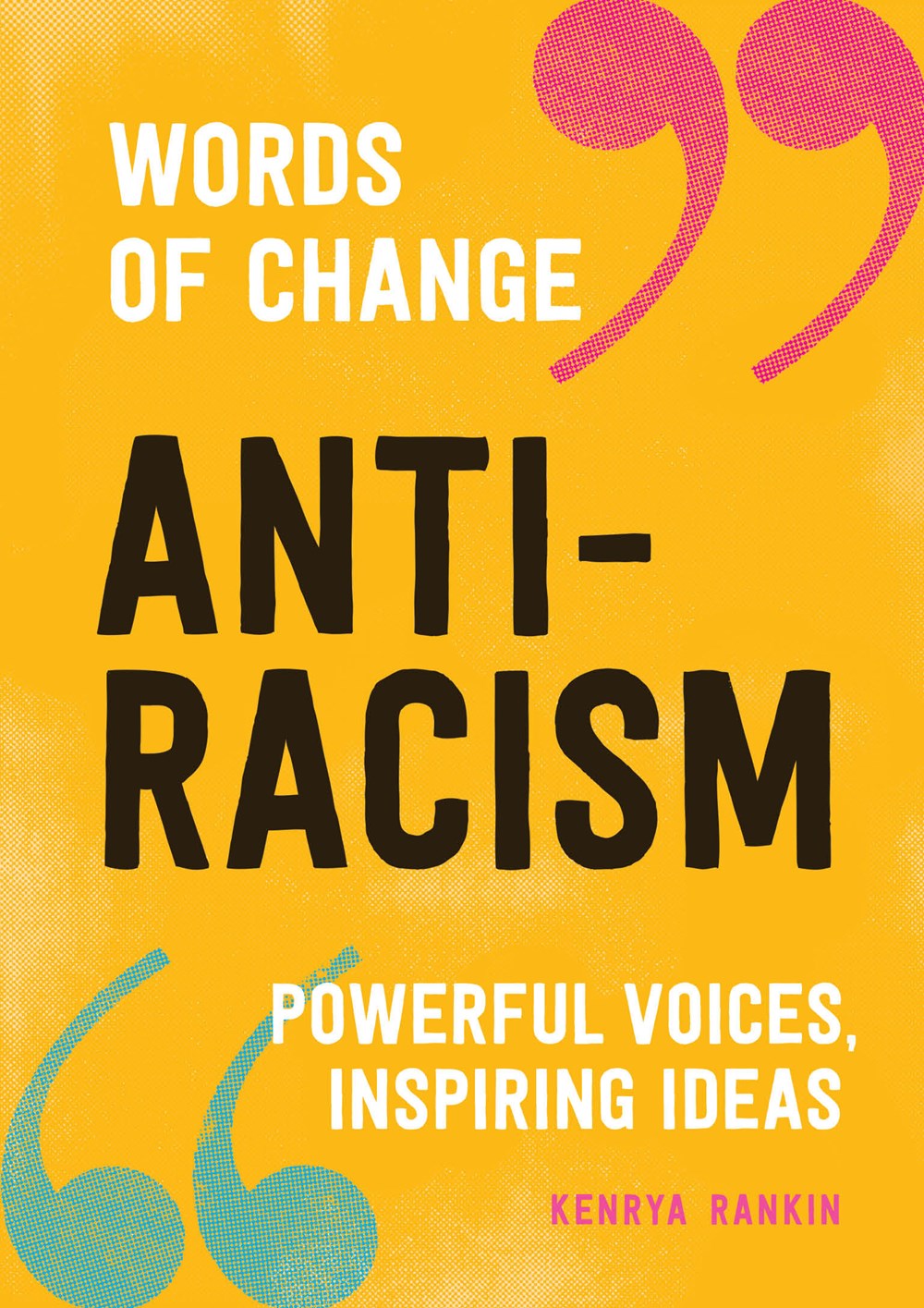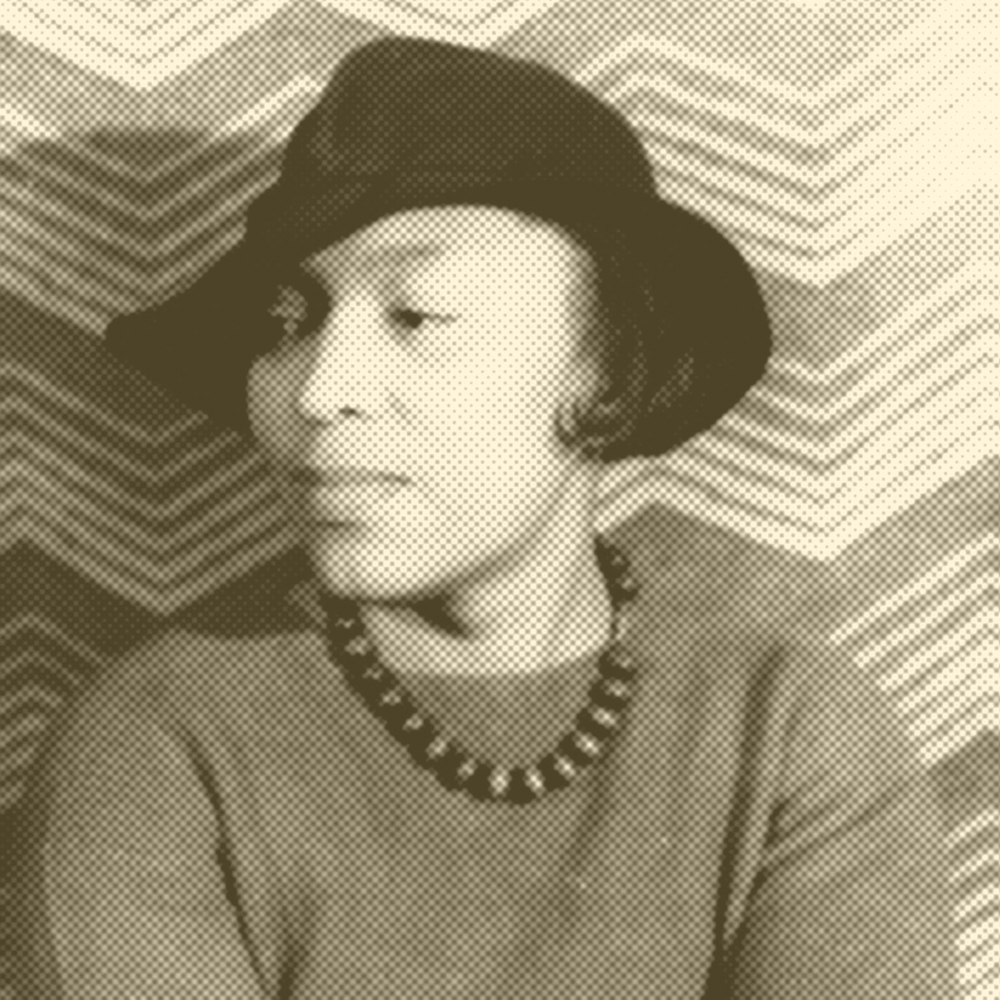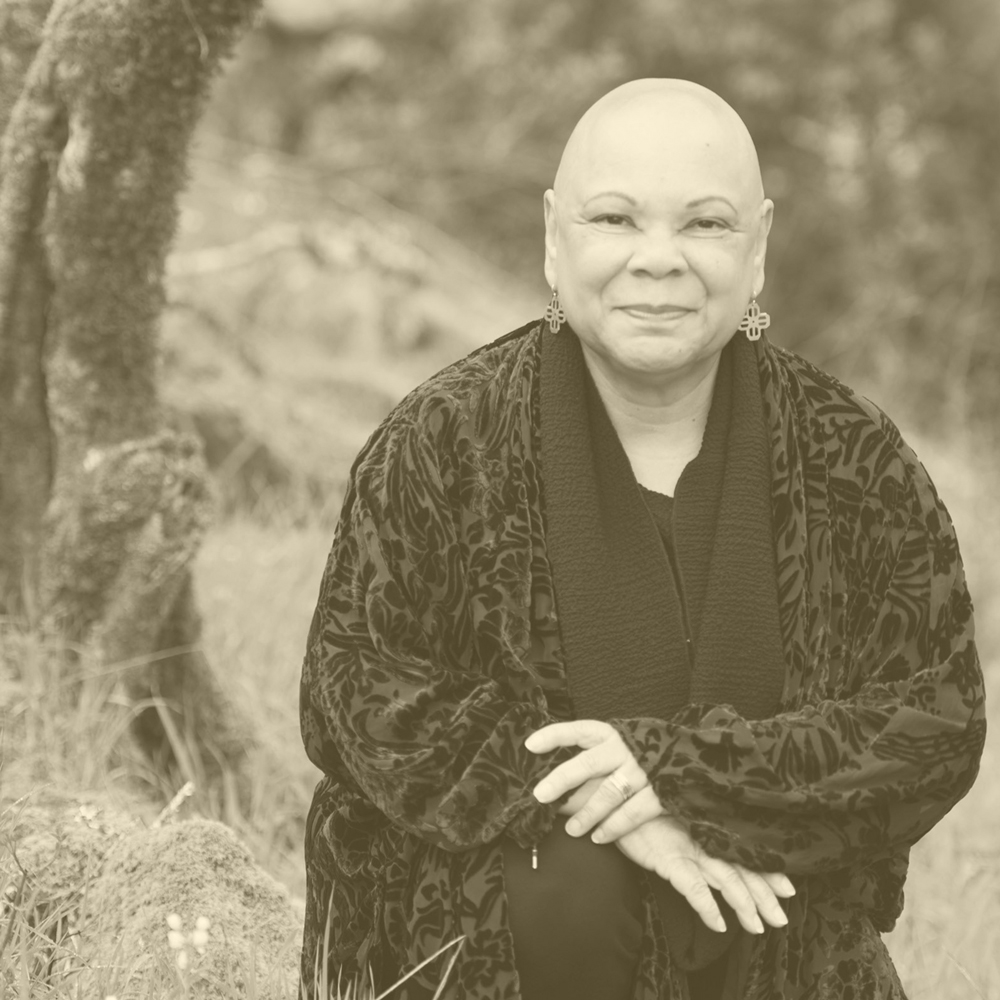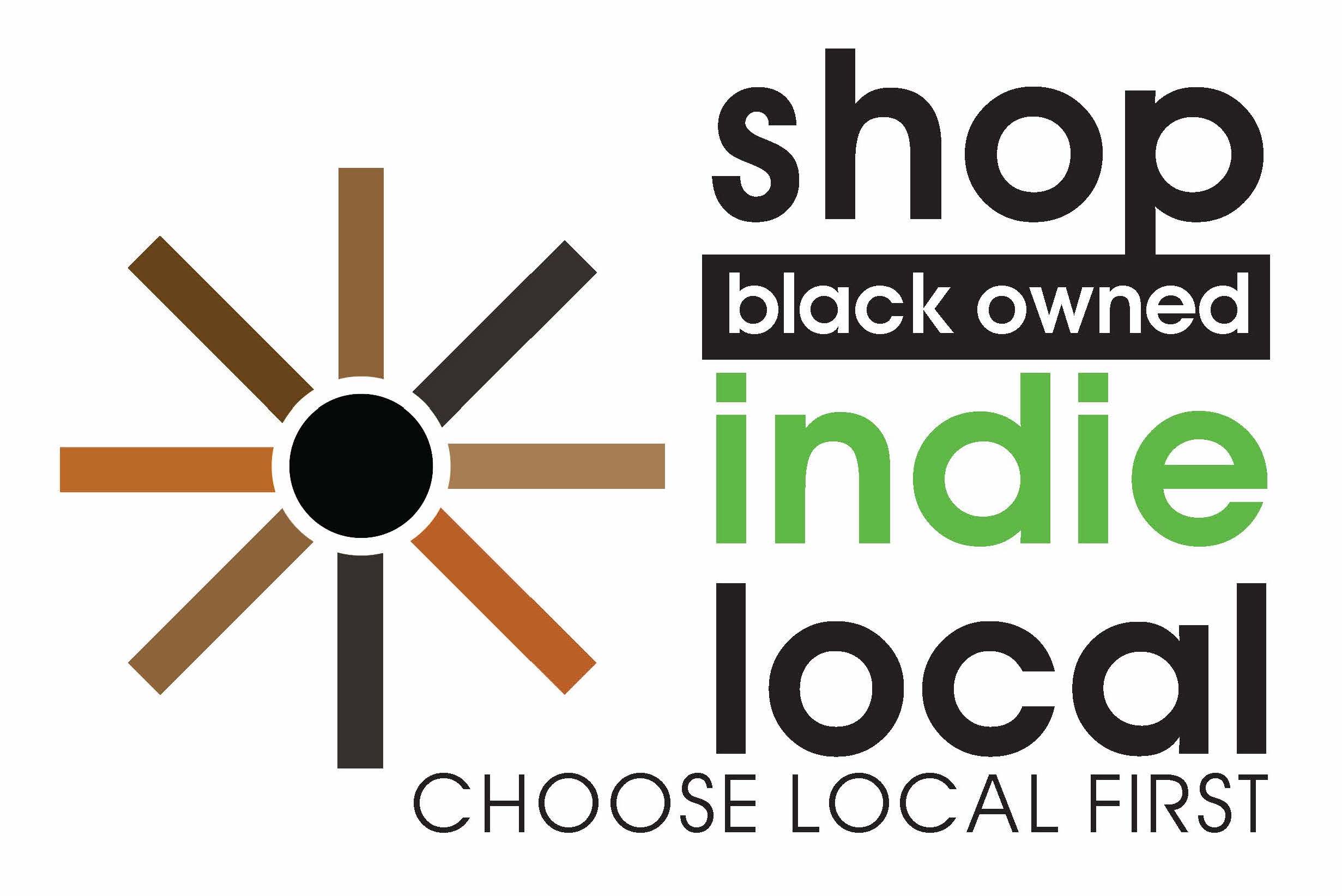|
|
Posted By Nicki Leone,
Tuesday, February 14, 2023
Updated: Saturday, February 11, 2023
|
 "Being an activist is not a special calling or a solitary, courageous occupation. We all have the potential to be activists if we show up, pay attention, and listen to each other." - Aria Chiodo "Being an activist is not a special calling or a solitary, courageous occupation. We all have the potential to be activists if we show up, pay attention, and listen to each other." - Aria Chiodo
Author Photo Credit: Medium.com | Excerpted from Words of Change: Anti-Racism by permission of Sasquatch Books. Copyright 2020 By Kenyra Rankin. All rights reserved.
Learn
Though some would believe otherwise, interpersonal racism is very real. We are seeing more visible evidence of this in the time of COVID19, including escalating attacks on Asian and Asian-American communities. Everyone, and especially White people, have a role in calling out racism and bigotry, and this can be a hard thing for some people to do. Even if it is not difficult to do, it can be difficult to do in a way that is ultimately productive, inviting someone who has said or done something that perpetuates racism to change or to consider changing.
We invite you to look over this checklist of racist behaviors and interventions (starts on page 6) as well as the 21 images of frequently heard micro-aggressions in this article. Consider how you see your own role and responsibility around addressing interpersonal racism.
Reflect
-
What acts and expressions of interpersonal racism do you see around you? Are you comfortable with intervening around racist behavior? If so, is it with some people as opposed to others?
-
What have you found to be effective? What has not worked? Reflect on your intent when you intervene – what do you hope will happen through your intervention? If you have not been able or chosen not to intervene, why is this the case? What would support you?
- Be aware of how you talk to customers. Do you address white people versus BIPOC people differently? If so, how? Resolve to do better.
Act
- Listen and observe more closely for subtle and not-so-subtle racist aggressions around you today and this week, including in the media.
-
Consider ways to intervene or to support others in doing so. If this is not comfortable, find an opportunity to share the checklist above and invite people to consider their behaviors and ways of checking themselves and others.
- Practice role playing scenarios with your colleagues and employees. Try acting out how you would respond to racist behaviour and assumptions from your customers, and how you would respond when your customers accuse you of racist behavior. By practicing how to navigate and manage uncomfortable situations, you will give yourself and your staff the tools and confidence to do the same with your customers. A good resource is Did That Just Happen? By Stephanie Pindar-Amaker and Lauren Wadsworth
Dig Deeper
Explore other links on the Challenge Resource Page. See how other Challenge participants are doing, and let them know how you are doing on the Challenge Bulletin Board
SIBA thanks its generous sponsors, who have made the 21-Day Racial Equity Challenge possible:
 
 Many of the quotes used in the Challenge are excerpted from Words of Change: Anti-Racism by permission of Sasquatch Books. Copyright 2020 By Kenyra Rankin. All rights reserved.
Although SIBA has modified when appropriate for a bookseller audience, the majority of prompts and resources come directly from the 21-Day Racial Equity Habit Building Challenge created by Food Solutions New England (FSNE), a regional collaborative network organized to support the emergence and continued viability of a New England food system that is a resilient driver of healthy food for all, racial equity, sustainable farming and fishing, and thriving communities. We are so grateful for their extraordinary work creating this program and making it available to other organizations.
Feedback? We welcome your thoughts.
This post has not been tagged.
Permalink
| Comments (0)
|
|
|
Posted By Nicki Leone,
Monday, February 13, 2023
Updated: Saturday, February 11, 2023
|
 "But all our phrasing-race relations, racial chasm, racial justice, racial profiling, White privilege, even White supremacy-serves to obscure that racism is a visceral experience, that it dislodges brains, blocks airways, rips muscle, extracts organs, cracks bones, breaks teeth. You must never look away from this." - Ta-Nehisi Coates "But all our phrasing-race relations, racial chasm, racial justice, racial profiling, White privilege, even White supremacy-serves to obscure that racism is a visceral experience, that it dislodges brains, blocks airways, rips muscle, extracts organs, cracks bones, breaks teeth. You must never look away from this." - Ta-Nehisi Coates
Author Photo Credit: Wikicommons | Excerpted from Words of Change: Anti-Racism by permission of Sasquatch Books. Copyright 2020 By Kenyra Rankin. All rights reserved.
Learn
Of the four levels of racism (internalized, interpersonal, institutional, and systemic – for a summary of these check out this link), internalized can be the hardest to see and is often the hardest to talk about. And yet for healing to happen, what is otherwise unseen must be named. Internalized racism can manifest as internalized racial inferiority on the part of Black, Indigenous and People of Color and as internalized racial superiority for White people.
To learn more, watch this short 3 min video by Dee Watts-Jones, which focuses on internalized racial inferiority, as well as this short 2 min segment with Hugh Vazquez. Also take a look at this page from the Dismantling Racism website which lifts up elements of both internalized inferiority and internalized white superiority.
Reflect
- Consider how you relate to these notions of internalized racial inferiority and superiority. Is either one familiar to you? If so, how do they show up in your life? How do they show up in your workplace, school, place of worship and/or community? How do they interact with feelings associated with other aspects of your identity (gender, age, ethnicity, class status, etc.)? Consider writing, drawing, singing or embodying your reactions in movement.
- See if you can identify any specific feelings as they surface while doing this reflection (refer to the Feelings Wheel). What comes up? What messages do these feelings convey?
Act
- Engage others in this conversation about internalized racial inferiority and internalized white superiority. Look for evidence of how these internalizations show up externally through interactions in your community, school, place of worship and workplace.
- Walk around your bookstore, as you were prompted to do last week, and look at what you're messaging to your community. Do your gift cards and gift selection feature and potentially cater to only/mostly White people? What books are you facing out around the store; are they written almost exclusively by White authors, or is there a significant balance of BIPOC authors?
- Form race-based caucuses to take these conversations deeper. For more information on and resources for supporting caucusing, see this page from Racial Equity Tools website.
- Engage in healing work for yourself. See this short article from Anneliese SIngh, author of The Racial Healing Handbook.
Dig Deeper
Explore other links on the Challenge Resource Page. See how other Challenge participants are doing, and let them know how you are doing on the Challenge Bulletin Board
SIBA thanks its generous sponsors, who have made the 21-Day Racial Equity Challenge possible:
 
 Many of the quotes used in the Challenge are excerpted from Words of Change: Anti-Racism by permission of Sasquatch Books. Copyright 2020 By Kenyra Rankin. All rights reserved.
Although SIBA has modified when appropriate for a bookseller audience, the majority of prompts and resources come directly from the 21-Day Racial Equity Habit Building Challenge created by Food Solutions New England (FSNE), a regional collaborative network organized to support the emergence and continued viability of a New England food system that is a resilient driver of healthy food for all, racial equity, sustainable farming and fishing, and thriving communities. We are so grateful for their extraordinary work creating this program and making it available to other organizations.
Feedback? We welcome your thoughts.
This post has not been tagged.
Permalink
|
|
|
Posted By Nicki Leone,
Sunday, February 12, 2023
Updated: Friday, February 3, 2023
|
Author Photo Credit: Allan Warren
Reflect
Part of grounding in the reality of racism and other forms of oppression is not simply about thinking, but also honoring our emotional and embodied reactions. There is important information in our feelings and bodies that dominant professional culture can often marginalize (more on this next week!). As you reflect on this week’s prompts and resources, what emotions come up? What do you sense in your body? What does that tell you? What can you learn from that?
For more information on tuning into emotions and embodied intelligence, check out The Move to End Violence and The Focusing Institute.
Don't Forget! Explore other links on the Challenge Resource Page. See how other Challenge participants are doing, and let them know how you are doing on the Challenge Bulletin Board
SIBA thanks its generous sponsors, who have made the 21-Day Racial Equity Challenge possible:
 
 Many of the quotes used in the Challenge are excerpted from Words of Change: Anti-Racism by permission of Sasquatch Books. Copyright 2020 By Kenyra Rankin. All rights reserved.
Although SIBA has modified when appropriate for a bookseller audience, the majority of prompts and resources come directly from the 21-Day Racial Equity Habit Building Challenge created by Food Solutions New England (FSNE), a regional collaborative network organized to support the emergence and continued viability of a New England food system that is a resilient driver of healthy food for all, racial equity, sustainable farming and fishing, and thriving communities. We are so grateful for their extraordinary work creating this program and making it available to other organizations.
Feedback? We welcome your thoughts.
This post has not been tagged.
Permalink
|
|
|
Posted By Nicki Leone,
Saturday, February 11, 2023
Updated: Friday, February 3, 2023
|
Author Photo Credit: Shutterstock.com/Lev Radin | Excerpted from Words of Change: Anti-Racism by permission of Sasquatch Books. Copyright 2020 By Kenyra Rankin. All rights reserved.
Reflect
While thinking back on the first week’s prompts, we invite you to take some time to reflect. Is there anything that you see differently based on your participation so far? What images come to mind? How does this impact how you think about your life/work/volunteerism/studies
in relation to the book business? Is there anything you are inspired to do differently?
Don't Forget! Explore other links on the Challenge Resource Page. See how other Challenge
participants are doing, and let them know how you are doing on the Challenge Bulletin Board
SIBA thanks its generous sponsors, who have made the 21-Day Racial Equity Challenge possible:
 

Many of the quotes used in the Challenge are excerpted from Words of Change: Anti-Racism by permission of Sasquatch Books. Copyright 2020 By Kenyra Rankin. All rights reserved.
Although SIBA has modified when appropriate for a bookseller audience, the majority of prompts and resources come directly from the 21-Day Racial Equity Habit Building Challenge created
by Food Solutions New England (FSNE), a regional collaborative network organized to support the emergence and continued viability of a New England food system that is a resilient driver of healthy food for all, racial equity, sustainable farming
and fishing, and thriving communities. We are so grateful for their extraordinary work creating this program and making it available to other organizations.
Feedback? We welcome your thoughts.
This post has not been tagged.
Permalink
|
|
|
Posted By Nicki Leone,
Friday, February 10, 2023
Updated: Friday, February 3, 2023
|
 "Our collective stories of race in the US are not easy to own. They are stories of slavery, violence, and systemic dehumanization. We will have to choose courage over comfort. We will have to feel our way through the shame and sorrow. We will have to listen. We will have to challenge our resistance and our defensiveness. We have to keep listening even when we want to scream, “I’m not that way. This isn’t my fault!" - Bene Brown "Our collective stories of race in the US are not easy to own. They are stories of slavery, violence, and systemic dehumanization. We will have to choose courage over comfort. We will have to feel our way through the shame and sorrow. We will have to listen. We will have to challenge our resistance and our defensiveness. We have to keep listening even when we want to scream, “I’m not that way. This isn’t my fault!" - Bene Brown
Author Photo Credit: Maile Wilson | Excerpted from Words of Change: Anti-Racism by permission of Sasquatch Books. Copyright 2020 By Kenyra Rankin. All rights reserved.
Learn
Gita Gulati-Partee and Maggie Potapchuk, in an article titled “Paying Attention to White Culture and Privilege: A Missing Link to Advancing Racial Equity,” write “Processes aimed at racial equity change can overlook the privileged side of inequity.” Work must include naming and de-centering whiteness, white privilege, and white superiority/supremacy, which racism is designed to protect and uphold. In other words, it is important not just to name white privilege, but also the power that is used to preserve that privilege – white superiority/supremacy.
One way to do this is to understand that there is a continuum of professed “white superiority” that is not simply about what may come to our minds as the most extreme forms (think Ku Klux Klan). We suggest looking at this framework that points out overt and covert aspects of white supremacy.
And as we consider “whiteness,” it is important to realize that it was created, defined and continues to be perpetuated in opposition to something else – “blackness.” As Robin DiAngelo says in this short 3 min video clip (please watch!),“There is something profoundly anti-Black in this country and in this culture.” There are, as she says, “bookends,” with white on one end and black on the other. Where you are on this continuum shapes your experience of racism – the whiter, the more opportunity, the darker, the more oppression. For more on officially sanctioned anti-Blackness, see some of john a. powell’s longer talk (video format; john comes on at 17:30 mark).
Reflect
-
NOTE: If any of these reflections are particularly triggering, please listen to your body. There is a difference between discomfort and panic. Pay attention to your “window of tolerance,” and take breaks or pace yourself as needed.
- What comes up for you as you review the framework on overt and covert forms of white supremacy, and consider the history and continued reality of anti-blackness? What thoughts, feelings, sensations, and images come up?
- How do you see some of the covert forms of white supremacy showing up in your work, studies, and volunteerism in the book industry? How does anti-blackness show up?
Act
-
Read the Executive Summary (pages 1 and 2) of the Toronto Plan to Confront Anti-Black Racism
-
Initiate conversation with others in your community, including your bookselling community. What do others see in terms of white supremacist/dominant culture and elements of anti-blackness? How might you start practicing alternatives to these?
- Partner with local, community-based organizations that are doing the work, through donations and event programming.
- Initiate staff conversation and education around representation in inventory and displays, staff picks (onine and in-store).
- Take the How Privileged Are You Quiz (5-10 minutes for quiz) to experience a version of the “Privilege Walk exercise” and see how you rank compared to other quiz takers. If inclined, invite others to do the same and to discuss with them.
- CONSULT this White Accomplices.org website on ways that white people can show up positively and proactively for racial justice (5-10 minutes)
Dig Deeper
For more about whiteness and anti-blackness, see these additional resources:
Don't Forget! Explore other links on the Challenge Resource Page. See how other Challenge participants are doing, and let them know how you are doing on the Challenge Bulletin Board
SIBA thanks its generous sponsors, who have made the 21-Day Racial Equity Challenge possible:
 
 Many of the quotes used in the Challenge are excerpted from Words of Change: Anti-Racism by permission of Sasquatch Books. Copyright 2020 By Kenyra Rankin. All rights reserved.
Although SIBA has modified when appropriate for a bookseller audience, the majority of prompts and resources come directly from the 21-Day Racial Equity Habit Building Challenge created by Food Solutions New England (FSNE), a regional collaborative network organized to support the emergence and continued viability of a New England food system that is a resilient driver of healthy food for all, racial equity, sustainable farming and fishing, and thriving communities. We are so grateful for their extraordinary work creating this program and making it available to other organizations.
Feedback? We welcome your thoughts.
This post has not been tagged.
Permalink
|
|
|
Posted By Nicki Leone,
Thursday, February 9, 2023
Updated: Friday, February 3, 2023
|
 "Sometimes, I feel discriminated against, but it does not make me angry. It merely astonishes me. How can any deny themselves the pleasure of my company? It’s beyond me." - Zora Neale Hurston "Sometimes, I feel discriminated against, but it does not make me angry. It merely astonishes me. How can any deny themselves the pleasure of my company? It’s beyond me." - Zora Neale Hurston
Author Photo Credit: Carl Van Vechten | Excerpted from Words of Change: Anti-Racism by permission of Sasquatch Books. Copyright 2020 By Kenyra Rankin. All rights reserved
Learn
Booksellers know it’s important to view their physical and online store through the eyes of their customers. You check out your window displays, walk through the aisles, look at what books you and your staff have positioned for special promotions
and recommendations. Today we ask you to do this exercise through the lens of anti-racism and racial equity. What do you see?
Reflect
- Are your reading choices, and what's displayed on your staff picks’ shelf inclusive of BIPOC authors?
- Are you buying books and gifts that reflect white authorship/white audience?
- What is the BIPOC representation in your online and in-store displays?
- What is the BIPOC representation in your author event programming?
- Could you and your store culture be actively supporting white superiority, even if unconsciously?
Dig Deeper
Don't forget! Explore other links on the Challenge Resource Page. See how other Challenge
participants are doing, and let them know how you are doing on the Challenge Bulletin Board
SIBA thanks its generous sponsors, who have made the 21-Day Racial Equity Challenge possible:
 

Many of the quotes used in the Challenge are excerpted from Words of Change: Anti-Racism by permission of Sasquatch Books. Copyright 2020 By Kenyra Rankin. All rights reserved.
Although SIBA has modified when appropriate for a bookseller audience, the majority of prompts and resources come directly from the 21-Day Racial Equity Habit Building Challenge created
by Food Solutions New England (FSNE), a regional collaborative network organized to support the emergence and continued viability of a New England food system that is a resilient driver of healthy food for all, racial equity, sustainable farming
and fishing, and thriving communities. We are so grateful for their extraordinary work creating this program and making it available to other organizations.
Feedback? We welcome your thoughts.
This post has not been tagged.
Permalink
|
|
|
Posted By Nicki Leone,
Thursday, February 9, 2023
Updated: Thursday, April 13, 2023
|
 LEARN. REFLECT. ACT....REFLECT LEARN. REFLECT. ACT....REFLECT
We are at the halfway point of the first week of the 21-Day Anti-Racist Challenge. Today's morning email theme is on The Expression of Racial Diversity in Your Bookstore.
Every Challenge Morning email is divided into four parts -- "Learn," an overview of the morning's theme, "Reflect," some questions to consider, "Act," a series of steps to take, and finally a "Dig Deeper" section of more resources to look at.
For many people it is tempting to skip right to the "Act" section. It gives something concrete to do (today's suggestions is to write an Anti-Racist statement for your store). And doing something makes us feel like we are, well, doing something. Something positive towards making a better world.
But it is perhaps the "Reflect" section that is the most important part of each morning's Challenge. Those questions it asks are questions that we can keep asking, in all sorts of situations. In fact, the point of the entire Challenge is to question our assumptions and (more to the point) get into the habit of questioning our assumptions.
This morning's REFLECT questions ask us to take a hard look at the books we stock, the books we promote, and the books we choose to read for ourselves:
- Are your reading choices, and what's displayed on your staff picks’ shelf inclusive of BIPOC authors?
- Are you buying books and gifts that reflect white authorship/white audience?
- What is the BIPOC representation in your online and in-store displays?
- What is the BIPOC representation in your author event programming?
- Could you and your store culture be actively supporting white superiority, even if unconsciously?
Replace "books" with other words of things you like or support -- music, sports, charities, local causes, newspaper columnists, television series you like to binge watch -- and all those questions above are still relevant, still worth asking, worth reflection.
Registration for the 21-Day Challenge remains open. Earlier posts can be seen anytime on the Challenge blog.
This post has not been tagged.
Permalink
| Comments (0)
|
|
|
Posted By Nicki Leone,
Wednesday, February 8, 2023
Updated: Friday, February 3, 2023
|
 "We are all implicated when we allow other people to be mistreated. An absence of compassion can corrupt the decency of a community, a state, a nation." -Bryan Stevenson "We are all implicated when we allow other people to be mistreated. An absence of compassion can corrupt the decency of a community, a state, a nation." -Bryan Stevenson
Author Photo Credit: reproduced by permission of Equal Justice Initiative | Excerpted from Words of Change: Anti-Racism by permission of Sasquatch Books. Copyright 2020 By Kenyra Rankin. All rights reserved.
Learn
In her book Sacred Instructions: Indigenous Wisdom for Living Spirit-Based Change, Penobscot lawyer, activist, and teacher, Sherri Mitchell (Weh’na Ha’mu Kwasset) writes “One of the most important things we can do for ourselves, our children and the future of the planet is to decolonize our minds and ways of life.” Mitchell defines colonization as “the act of appropriating or forcibly
overtaking a place and exerting control over it.” Mitchell writes that addressing colonization in the modern day means confronting “the lingering systems of control and the insidious patterns of thinking that colonization brings.”
Reflect
- What is the racial makeup of your workplace? Does it reflect your community's racial makeup?
- Are there hiring policies in place to increase diversity?
- Examine the store’s internal messaging to staff: employee handbook and manual (which may include dress codes), staff communication platforms, appointment of "keyholders," scheduling, images on letters to staff, etc. Is any/all of this messaging
anti-racist? Inclusive?
- If you want more people of color at your events and in your workplace, evaluate where you are promoting events and hiring opportunities.
Act
- Consult with a DEI specialist or DEI-trained HR professional to review your internal messaging, and external messaging when hiring, through the lens of racial equity.
- Review your anticipated staffing requirements and identify organizations in your community that will help you source your needs equitably.
- Take a hard look at your hiring requirements for criteria that may disproportionately exclude marginalized workers, such as education requirements or background checks.
- Study, discuss, reflect on the Characteristics of White Supremacy individually and with colleagues to address any issues that might exist in your workplace and beyond
Dig Deeper
Don't Forget! Explore other links on the Challenge Resource Page. See how other Challenge
participants are doing, and let them know how you are doing on the Challenge Bulletin Board
SIBA thanks its generous sponsors, who have made the 21-Day Racial Equity Challenge possible:
 

Many of the quotes used in the Challenge are excerpted from Words of Change: Anti-Racism by permission of Sasquatch Books. Copyright 2020 By Kenyra Rankin. All rights reserved.
Although SIBA has modified when appropriate for a bookseller audience, the majority of prompts and resources come directly from the 21-Day Racial Equity Habit Building Challenge created
by Food Solutions New England (FSNE), a regional collaborative network organized to support the emergence and continued viability of a New England food system that is a resilient driver of healthy food for all, racial equity, sustainable farming
and fishing, and thriving communities. We are so grateful for their extraordinary work creating this program and making it available to other organizations.
Feedback? We welcome your thoughts.
This post has not been tagged.
Permalink
|
|
|
Posted By Nicki Leone,
Tuesday, February 7, 2023
Updated: Friday, February 3, 2023
|
 "Racism is a heart disease. How we think and respond is at the core of racial suffering and racial healing. If we cannot think clearly and respond wisely, we will continue to damage the world’s heart." -Ruth King "Racism is a heart disease. How we think and respond is at the core of racial suffering and racial healing. If we cannot think clearly and respond wisely, we will continue to damage the world’s heart." -Ruth King
Author Photo Credit: Vaschelle Andre | Excerpted from Words of Change: Anti-Racism by permission of Sasquatch Books. Copyright 2020 By Kenyra Rankin. All rights reserved.
Learn
Socialization is a process we all go through – it is how we develop values, habits, and attitudes and learn to function in the world. Understanding the process of socialization can help us understand how we came to where we are in our views of race
and racism in the book industry (and other related) systems and what we are willing and “able” to do to work for justice. Consider this model of socialization and look at the different forces at play that reinforce attitudes and beliefs, and also at what can create new patterns (a theme for the third week of the Challenge). Also watch this short video (less than 4 minutes) on “the culture cycle” at play around race in society.
Reflect
- What do you see as the most important influences in your own racial socialization (parents, other family members, community, teachers, friends, colleagues, institutions, etc.)?
- What forces push you away from deeper consideration of, and work for, racial equity? What supports might pull you towards more steady work for racial equity in the book industry and other systems?
- What feelings and bodily sensations come up as you explore the cycle of socialization in your own
life?
- Consider doing an art response (drawing, poetry, music, collage, etc.) regarding socialization and culture cycles in your life.
Act
Share the cycle of socialization and/or culture cycle with friends, family members, colleagues. Talk about your respective paths of socialization. What actions could you take to mutually support one another in the direction of positive change? Start
taking some small steps! Share with others to inspire and encourage them.
Dig Deeper
Don't forget! Explore other links on the Challenge Resource Page. See how other Challenge
participants are doing, and let them know how you are doing on the Challenge Bulletin Board
SIBA thanks its generous sponsors, who have made the 21-Day Racial Equity Challenge possible:
 

Many of the quotes used in the Challenge are excerpted from Words of Change: Anti-Racism by permission of Sasquatch Books. Copyright 2020 By Kenyra Rankin. All rights reserved.
Although SIBA has modified when appropriate for a bookseller audience, the majority of prompts and resources come directly from the 21-Day Racial Equity Habit Building Challenge created
by Food Solutions New England (FSNE), a regional collaborative network organized to support the emergence and continued viability of a New England food system that is a resilient driver of healthy food for all, racial equity, sustainable farming
and fishing, and thriving communities. We are so grateful for their extraordinary work creating this program and making it available to other organizations.
Feedback? We welcome your thoughts.
This post has not been tagged.
Permalink
|
|
|
Posted By Nicki Leone,
Monday, February 6, 2023
Updated: Friday, February 3, 2023
|
21-Day Racial Equity Challenge Day 1
 "Create the change the world needs by creating change within yourself." - Layla F. Saad "Create the change the world needs by creating change within yourself." - Layla F. Saad
Author Photo Credit: LaylaFSaad.com | Quote from Me and White Supremacy by Layla F. Saad, Sourcebooks, 2020
Learn
Understanding the process of racial identity development is important for self-awareness, relationship-building, and work for equity. We are, all of us, wonderful mash-ups of identities and experiences and we invite you to reflect specifically on where you are in the different stages of racial identity development. Visit or revisit this summary of different racial identity development models or listen to some of the stories on the EmbraceRace website that speak to how racialization shapes our individual and collective lives.
Reflect
- What thoughts, feelings, and sensations do you notice, having reviewed one or more of the models?
- How do you think about your own racial identity and its relevance to your life, work, studies, and/or volunteerism in the book industry?
- Consider doing an art response (drawing, poetry, music, collage, etc.) regarding where you are in your racial identity development and what this means to you.
Act
Have a conversation with a friend or family member about racial identity development. Also consider talking with someone you know, who would be willing, who identifies as being of a different race. Take this framework into your community or workplace (or both) and discuss. Ask "How might this guide or inform our collective work for racial equity?"
Dig Deeper
Explore other links on the Challenge Resource Page. See how other Challenge participants are doing, and let them know how you are doing on the Challenge Bulletin Board
SIBA thanks its generous sponsors, who have made the 21-Day Racial Equity Challenge possible:
 
 Many of the quotes used in the Challenge are excerpted from Words of Change: Anti-Racism by permission of Sasquatch Books. Copyright 2020 By Kenyra Rankin. All rights reserved.
Although SIBA has modified when appropriate for a bookseller audience, the majority of prompts and resources come directly from the 21-Day Racial Equity Habit Building Challenge created by Food Solutions New England (FSNE), a regional collaborative network organized to support the emergence and continued viability of a New England food system that is a resilient driver of healthy food for all, racial equity, sustainable farming and fishing, and thriving communities. We are so grateful for their extraordinary work creating this program and making it available to other organizations.
Feedback? We welcome your thoughts.
This post has not been tagged.
Permalink
|
|
|
Posted By Nicki Leone,
Thursday, February 2, 2023
Updated: Thursday, April 13, 2023
|
 Can you take the Fifteen Percent Pledge? Can you take the Fifteen Percent Pledge?
The Fifteen Percent Pledge is a racial equity and economic justice non-profit organization working towards a more equitable economic future. As Black people in the U.S. make up about 15% of the population, the organization calls on retailers to commit to spending 15% of their annual purchasing on Black-owned brands.
A number of large retailers have already signed on, including well-known names such as Banana Republic, Bloomingdale's, Crate & Barrel, Gap, Hudson's Bay, Macy's, Nordstrom, and Old Navy.
The idea started, as many grassroots movements do, with a social media post, when in May of 2020 Aurora James tagged some of the world's largest retail brands and said "We represent 15% of the population and we need to represent 15% of your shelf space."
It was the right message at the right time, and now, thanks to the Fifteen Percent pledge, over $10 billion dollars of revenue has been shifted to Black-owned businesses.
For a consumer, the pledge is a simple commitment to shop black-owned businesses. There is a directory on the Pledge website, and you can also consult the AMIBA Shop Black-Owned resource page.
As a bookstore owner the task is more challenging. While it is possible to source 15% of your gifts and sidelines from Black-owned companies, your inventory comes largely from the same dozen or so main suppliers.
You can, however, increase the number of books by Black authors on your shelves. What would your YA section look like if you applied that 15% pledge to the shelf space you give it? What about your Romance section? What about Biographies & Memoirs?
Take the pledge
This post has not been tagged.
Permalink
| Comments (0)
|
|
|
Posted By Nicki Leone,
Thursday, January 26, 2023
Updated: Thursday, April 13, 2023
|
 Answering the call. Answering the call.
Usually this column focuses on an aspect of anti-racist work bookstores can apply to their businesses. But it is hard to judge how effective such work is just from the vantage point of your own store cash wrap. This is not work that can be done in a vacuum, and an anti-racist commitment doesn't stop at the front door to your shop. It is something you bring to your entire community, including your bookselling community.
Right now, the American Booksellers Association is seeking nominations to fill five vacancies for ABA’s Diversity, Equity & Inclusion Committee (DEIA), which serves as a sounding board and advisory council on issues related to anti-racism, equity, access, and representation, facing the bookselling community and ABA. Booksellers are invited to nominate themselves or another bookseller.
Nominate here
The committee, which has thirty members, is designed to provide the Board with a broad cross-section of views from within the community of independent booksellers, and has done work on a wide range of issues on behalf of independent booksellers. This includes everything from reviewing ABA policy to advising on programming and helping with advocacy.
Booksellers doing anti-racist work in their businesses should consider nominating themselves or key staff for the DEIA Committee. Not only is it an opportunity to bring your perspective to the wider bookselling community, it is also a chance to work with other booksellers who have the same goals, and to be an instrument of change in the industry.
This post has not been tagged.
Permalink
| Comments (0)
|
|
|
Posted By Nicki Leone,
Thursday, January 19, 2023
Updated: Thursday, April 13, 2023
|
 What are your plans for Black History Month? Are they enough? What are your plans for Black History Month? Are they enough?
Black History Month was made "official" in 1976 by President Gerald Ford, as an opportunity "to honor the too-often neglected accomplishments of Black Americans in every area of endeavor throughout our history." Of course, the presidential declaration was a culmination of a long fight for the acknowledgment of Black contributions to this country, beginning in 1926 when the historians Carter G. Woodsen and Jesse E. Moorland founded the Association for the Study of Negro Life and History, and set aside a week in February to honor Black history.
Most bookstores acknowledge Black History Month in some manner. They will create special displays for Black History Month. They may host a special event, or assign books by Black authors for store book clubs and storytimes. But these things have become almost rote actions. A month later they will do the same things for Women's History Month. A month after that, for Poetry Month.
"To honor" is "to show great esteem and respect." And this is something we could all ask ourselves as February and Black History Month approaches. Does a book display really show "GREAT respect"? Are there other things a bookstore can do that would be more in the spirit of honoring the history and impact of Black Americans, and the meaning of Black History Month?
Ron Carucci and Christopher Littlefield, who write about leadership issues for Forbes Magazine, have created a kind of checklist for business leaders to bring the original meaning and purpose of Black History Month back to the forefront, based on the work of Dr. Zoe Spencer, activist professor of sociology at Virginia State University and CEO of Diverse Relations Group LLC.:
1. Test your assumptions about Black history. Does "Black History" for you begin with slavery? Did racism end with Martin Luther King Jr and the Civil Rights Amendment?
2. Be brave enought to challenge your version of history. Black people have been denied credit for many of their accomplishments. This is simple fact. Don’t be afraid to unlearn.
3. Examine how the media shapes your narrative. How many Black faces do you see in the television programs you are watching, and what are their roles? What about your social media feeds? Who are you choosing to follow and friend?
4. Challenge unfounded narratives when you hear them. This is where bookstores shine. Bookstores are centers of knowledge and information. They are in the business of putting knowledge into the hands of their customers, and of advising people what is worth reading. So it is worth asking, how is your store plan for Black History Month challenging some of those unfounded narratives?
Ultimately, Dr. Spencer notes, Black History Month should be "a meaningful, honorable, and transformative experience for all," and one that "expands our knowledge of and respect for Black contributions to world civilization."
Read more
This post has not been tagged.
Permalink
| Comments (0)
|
|
|
Posted By Nicki Leone,
Thursday, January 12, 2023
Updated: Thursday, April 13, 2023
|
 Statistics You Should Know Statistics You Should Know
This week SIBA has opened registration to it's 2023 21-Day Racial Equity Challenge. The Challenge is designed to help people make issues of equity and inclusion a habitual frame of mind, rather than an occasional consideration. And while the challenge is modeled as a self-guided journey, SIBA intends it to be a professional tool for bookstores in creating successful business models.
So why take the time to do the challenge? In an industry where businesses consider a 2% year end net profit to be a highly successful year, business owners have to be deliberate in the choices they make and the things they invest in. Here are some statistics that explain why investing in DEI initiatives makes good business sense:
Companies with higher-than-average diversity had 19% higher innovation revenues.
In a survey of 1700 companies across eight countries, the Harvard Business Review determined there was a statistically significant relationship between diversity and innovation. The more diverse the workforce, the more innovative and adaptable the company.
Organizations with above-average gender diversity outperform companies by 46% to 58%.
A 2016 Gallup Report found that racial and gender diversity was integral to creating a workplace culture where employees feel valued and welcome. This translates into lower employee turnover, better employee engagement, and a better overall financial performance.
67% of job seekers consider diversity important when considering employment opportunities.
According to a survey by Glassdoor.com, three out of four people consider a diverse workforce an important factor when evaluating job offers. Your workforce is a visible demonstration of your diversity hiring policies. A lack of diversity in staffing can result in your company losing talented potential new hires.
Ultimately, according to a study by MacKinsey & Company, there is a direct correlation between racial and ethnic diversity and better financial performance
Read more at Bonus.ly
This post has not been tagged.
Permalink
| Comments (0)
|
|
|
Posted By Nicki Leone,
Wednesday, January 11, 2023
|
SIBA has created this 21-Day Challenge as part of its
commitment to provide anti-racist initiatives and training to its membership. This is the third year SIBA has held this challenge, and the content has been updated to reflect recent concerns and issues, and to make recently created resources available.
Even if you have participated in the challenge in the past, you will find new material available to you this year.
The Challenge will begin on February 6th. Registration will close on
Sunday. February 5th. Each day, participants will be emailed a prompt for reflection, discussion, and action. The prompts will also appear on this blog, along with more ideas and resources as the Challenge progresses.
The Challenge is divided into three weekly themes:
Week 1: Anti-Racism and Your Bookstore
Week 2: Anti-Racism and Your Community
Week 3: Creating an Equitable Society - Change starts now.
We call this a "Challenge" because it will be hard work. Participants last year remarked that it requires a time commitment, and the willingness to self-pace as necessary to avoid being overwhelmed. To make this a success, keep in mind these three tips:
- Grant yourself extra time for working on each day’s prompt. Sit with whatever comes up, and pause before reentering space with others.
- Keep a journal of some kind handy to jot down your thoughts and feelings as they occur. This will be an invaluable record as you work through the challenge.
- Welcome to the first day of the rest of of your life! The Challenge is an opportunity to apply what you’re learning to your everyday life, but it’s not something that ends after 21 days. Becoming anti-racist is an ongoing process
and this challenge is meant to support you on your ever-evolving journey.
SIBA created "The Anti-Racist Bookseller" column as a resource for booksellers seeking to keep their anti-racist work going throught the year. A new article
appears in each SIBA newsletter.
Booksellers already know that books change lives. Words change lives. But it is the people who read them who take what they have learned and go on to change the world. We can't wait to see the changes each of you will make.
Register to take the 21-Day Racial Equity Challenge
This post has not been tagged.
Permalink
|
|
|
Posted By Nicki Leone,
Thursday, January 5, 2023
Updated: Thursday, April 13, 2023
|
 5 Things Bookstores Can Do 5 Things Bookstores Can Do
Last year the American Booksellers Association hosted an Anti-Racism seminar for booksellers, Ally? Accomplice? Co-Conspirator?! An Antiracism Seminar about Doing the Work with W. Kamau Bell and Kate Schatz.
One of the results of that workshop was a collaborative list of actions booksellers were doing or could take to "Resist, Dismantle, Address, Challenge, Upend, Subvert, and Eliminate White Supremacy and All Forms of Oppression." As we come into a new year and renew our commitment to anti-racist work, here are some of the things that were included on the list:
- Host a marathon reading of banned books to draw attention to current book-banning
- Honor indigenous communities by: displaying a sign w/ an indigenous land acknowledgment; featuring books by local indigenous authors; interviewing with local Indigenous peoples about their culture, lifestyle, and people and offer an opportunity to be honored in your store; paying a land tax to local tribes (Lee Francis from Red Planet Books + Comic, Albuquerque, NM)
- “Curation is not censorship”—it’s OK to choose to not carry/display/promote certain books; there are also lots of ideas in our Antiracist Action Plan! (Candice Huber from Tubby + Coo’s, New Orleans, LA)
- Create table displays that honor marginalized voices ALL year, not just during their “month” (Morgan from Greenlight Books, Brooklyn, NY)
- Encourage booksellers to decolonize their own reading—what does your TBR look like? Who’s on it, and who’s not on it?
This post has not been tagged.
Permalink
| Comments (0)
|
|
|
Posted By Nicki Leone,
Wednesday, December 14, 2022
Updated: Thursday, April 13, 2023
|
 Revisiting your DEI Statement
Revisiting your DEI Statement
In the wake of George Floyd's murder in 2020 and the rise of the Black Lives Matter movement, many business and organizations adopted Diversity statements to show their solidarity with the grass roots movement advocating for change
and also as a promise the enact change within.
As the year comes to a close, it may be the time to ask, have we kept that promise?
Organizations should periodically re-examine their Diversity Statements and policies to ensure they meet their goals. DEI Statements inform policy and provide guidance, so they will evolve with the company while being a compass that
always points towards equity.
A DEI Statement can vary widely, but they usually include some or all of the following:
- A statement of the company’s mission
- An explanation of how DEI connects to that mission
- A call-out to specific underrepresented groups
- High-level examples of DEI efforts
(via)
A best practice when writing your organization's DEI statement is to make it specific to your company, rather than generic and abstract. Use a strong headline, positive language, and include specific examples of how the organization
meets the goals stated in its mission.
Tips and examples of good DEI Statements
At its core, a Diversity Statement is supposed to inspire action and create a sense of community within your organization. If your bookstore's DEI statement was originally adopted from a template, or modeled on another store or organization,
it is worth taking another look at it and making it something that truly represents your store and your values.
This post has not been tagged.
Permalink
| Comments (0)
|
|
|
Posted By Nicki Leone,
Thursday, December 8, 2022
Updated: Thursday, April 13, 2023
|
 Be a partner. Join the Shop Black-Owned Businesses Campaign, February 2023 Be a partner. Join the Shop Black-Owned Businesses Campaign, February 2023
The American Independent Business Alliance invites independent business alliances, neighborhood associations, and local economy-minded business networks to partner with them to grow their Shop Black-Owned Campaign, part of the Shop Indie Local year-round movement.
Becoming a partner is free, nor does your store need to identify as Black-owned to participate.
Indie bookstores understand the importance of creating partnerships with other local businesses in their communities. Such partnerships are often a key factor in raising each other's visibility, and advocating for shared interests. One simple and effective step bookstores with a commitment to anti-racist action is to create partnerships with the Black-owned businesses in their own communities. The AMIBA Shop Black-Owned Campaign provides partners with resources and tools to facilitate those relationships.
Where are the Black-owned businesses in your area?
 Creating a display, posting a sign, or sharing social media posts are all simple actions of support to take, but if a customer came in to your shop and asked you where to go to shop at local Black-owned businesses, would you be able to answer? The first step to supporting Black-owned businesses in your own area is to know who they are and where they are. One of the resources provided above by AMIBA is a list of links to some directories of Black-owned businesses and professional associations. Creating a display, posting a sign, or sharing social media posts are all simple actions of support to take, but if a customer came in to your shop and asked you where to go to shop at local Black-owned businesses, would you be able to answer? The first step to supporting Black-owned businesses in your own area is to know who they are and where they are. One of the resources provided above by AMIBA is a list of links to some directories of Black-owned businesses and professional associations.
But your own Chamber of Commerce will have more detailed information about your community. The US Chamber of Commerce provides links to online Black-owned business directories which may be useful. A year ago the list included eight directories, now it has fifteen.
Nothing beats your own local knowledge, however. Every bookseller, when asked, can give a list of local authors in their area. That is a talent easily put to use to create your own local shop Black-owned list of businesses.
Incidentally, SIBA would appreciate copies of local Black-owned business directories created by its members. As we transition into holding more in-person events around SIBA territory, one of our commitments is to source from local businesses that have good relationships with our members.
This post has not been tagged.
Permalink
| Comments (0)
|
|
|
Posted By Nicki Leone,
Thursday, November 17, 2022
Updated: Saturday, April 22, 2023
|
 Land Acknowledgments Land Acknowledgments
"When we talk about land, land is part of who we are. It's a mixture of our blood, our past, our current, and our future. We carry our ancestors in us, and they're around us. As you all do."
– Mary Lyons (Leech Lake Band of Ojibwe) via Native Governance
Of all the official American holidays on the calendar, Thanksgiving is one of the most emotional and intimate. Even though the holiday sometimes feels snowed under by newspaper inserts and Black Friday sales, the day itself has always been primarily about togetherness, family, and food.
And for the many Indigenous peoples of the continent, a day to mourn. One of the great tasks of anyone trying to live an anti-racist life is to acknowledge and reconcile (or discard) beloved cultural traditions that are built upon an oppressive, racist foundations.
How do we honor the values of Thanksgiving -- the togetherness and generosity and gratitude -- and yet still acknowledge what it represents to Indigenous people? We tend to associate Thanksgiving with a somewhat mythical story of Pilgrims and Native Americans sitting down to eat together, but the truth is Thanksgiving was first established as a national holiday by Abraham Lincoln in 1863, as a kind of "thank you" to the advancing Union armies and a call for unity and healing among the American people.
There is a growing movement to "decolonize" Thanksgiving and turn it into something that more meaningfully honors the heritage of all the peoples on this continent. "Meaningful" is the watchword here. One practice that has become more common in recent years is to make a Land Acknowledgment part of important events and celebrations.
A Land Acknowledgment is a formal statement of recognition and respect for the indigenous peoples who were and are the traditional inhabitants and stewards of the specific place of the event. Organizations and groups also create Land Acknowledgments as part of the work they do in their communities. Independent bookstores sometimes create a Land Acknowledgment in recognition of their own role in and commitment to the heritage of their local communities.
A Land Acknowledgment (which is not, by the way, a "Land Welcome," the distinction is important) is not something to be simply copied from some template found online. Every one is unique because the history of every place is unique. There are over 550 Native American nations in the United States. Consider this map of the traditional territories of Indigenous peoples: https://native-land.ca/.
Bookstores looking to create a meaningful Land Acknowledgment for their store should take the time to research what and who should be acknowledged, and why. The Native Governance Center has published a useful guide to creating an Indigenous Land Acknowledgment statement that includes questions to ask yourself as you do your research: Why are you doing this land acknowledgment? What is your end goal?
The guide also offers some tips to writing a land acknowledgment statement that is truly meaningful and intentional. For example: be specific about the names and history of the Indigenous people to whom the land belonged and belongs -- including the history of the land itself and any treaties, honored or broken. And be scrupulous about correct spelling and pronunciation for the names of Tribes, places and peoples. Also include the names of living Indigenous peoples from the community. There is a tendency to talk about Indigenous peoples in the past tense. They are not. They are active, vibrant, contemporary cultures.
A Land Ackowledgment will not minimize or dismiss past crimes by avoiding accurate terms: genocide, forced removal, ethnic cleansing. But neither is it simply an accusation:
"Land acknowledgments shouldn't be grim. They should function as living celebrations of Indigenous communities. Ask yourself, 'How am I leaving Indigenous people in a stronger, more empowered place because of this land acknowledgment?' Focus on the positivity of who Indigenous people are today." --The Native Governance Center (via)
In the end, a Land Acknowledgment is a first step, an expression of gratitude to those who have been here long before us, and also a promise, a commitment to take action and effect change. It is a promise we can't break.
More resources
https://nativegov.org/resources/
This post has not been tagged.
Permalink
| Comments (0)
|
|
|
Posted By Nicki Leone,
Friday, November 11, 2022
Updated: Saturday, April 22, 2023
|
 What's in your TBR stack? The Pen Report, Part III:
Challenging Stereotypes in Publishing and Bookselling What's in your TBR stack? The Pen Report, Part III:
Challenging Stereotypes in Publishing and Bookselling
At the root of the charge that the publishing industry is inequitable is the simple, statistically valid observation that it just does not publish books by writers of color in numbers that in any way reflect the number of people of color in the country:
"According to one analysis, 95 percent of American fiction books published between 1950 and 2018 were written by white people." (Reading Between the Lines: Race, Equity, and Book Publishing)
And yet, the recent census estimates 42% of the country are people of color. The first step to fixing this discrepancy is to increase the number of diverse staff among the "gatekeepers" -- the people who decide what books to publish, the acquisitions scouts, the editors, the imprint publishers, and so on. But it is already well-documented that hiring diverse employees does not magically erase the racist bias in a company's culture. For that to truly change, the people who created it and benefit from it have to change. That means letting go of some assumptions. For example:
1. Writers of color have a smaller, limited audience. This is basically saying that white people won't buy or read books by writers of color because those books aren't about them.
2. On the flip side, the "ideal reader" is always white, even for an author of color. The book won't be a success if it doesn't appeal to white readers.
3. Including one book by an author of color is enough to dispel the perception of bias, while not being much of a commercial risk. Also implied in the "one is enough" rule is the assumption that writers of color only have one kind of story to tell:
"Speaking to The New York Times in December 2020, former Simon & Schuster editor Michael Strother recalled a 2016 meeting at which he tried to authorize a large bid for Angie Thomas's The Hate U Give, which went on to achieve massive commercial success and a Hollywood adaptation. He said he was asked, 'Do we need Angie Thomas if we have Jason Reynolds?'
4. White readers only want to hear one kind of story from writers of color -- a story they have already heard and has already been a commercial success. The people interviewed by the Pen Report used the phrase "identity trap". The Pen Report quoted bookseller Marva Allen of Hueman Books, who said that Black authors who want contracts “have to write about slavery or Black Lives Matter or racism.†Worse, writers of color are expected to write about their trauma and pain because those stories are the easiest for publishers to capitalize on. They understand those stories, and they know how to market those kinds of stories.
"Writers of color often have to struggle with that idea—that something traumatic can then be monetized and that it’s a good thing that something bad happened because it gives you material. There’s a hunger for those stories from writers of color, and that hunger comes from a complicated, politicized place. It gets very difficult for a writer to approach that story and to be able to tell it from a place of your own desire to tell it." --Ingrid Rojas Contreras
When publishers reduce writers to stereotypes of race or ethnicity or identity, they miss or outright erase the complexity of the stories those writers are telling -- complexity which is there because of the simple fact that the writers are human beings, and all human beings are complicated.
The problems caused by the biases of gatekeepers in publishing are also present in the gatekeepers in bookselling; the store owners and book buyers, who decide what books to stock, and store staff, who decide what books to hand to customers. Every bookseller should cast a critical eye over their TBR stack and ask how much the books we read reinforce our own biases, and what books we could be reading that would break those biases down.
Read the full report here
This post has not been tagged.
Permalink
| Comments (0)
|
|